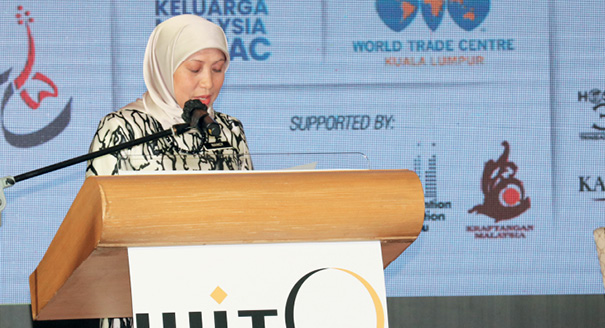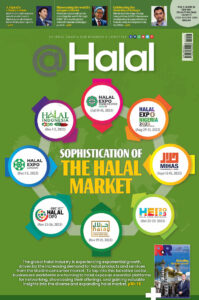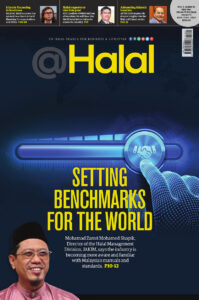 WITC brings exciting discussions on Islamic Tourism beyond the pandemic
WITC brings exciting discussions on Islamic Tourism beyond the pandemic
 BY FATIHAH MANAF
BY FATIHAH MANAF
The tourism sector is experiencing a significant recovery with people being allowed to travel again. With an approximately 1.8 billion Muslim population today, Islamic Tourism is expected to be one of the key segments to spur the industry after the pandemic.
From 15 to 17 November 2021, Islamic Tourism Centre (ITC) organised the 2nd World Islamic Tourism Conference (WITC) with the theme “Islamic Tourism New Norms and Revitalisation” in a hybrid format. The event was held physically at World Trade Centre, Kuala Lumpur, and virtually on Zoom and ITC’s Facebook Page.
The conference aimed to explore the challenges and opportunities related to the development, management and promotion of Muslim-friendly tourism in a time of post-pandemic recovery.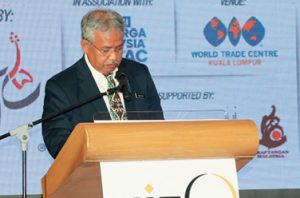
ITC Chairman Datuk Wira Dr Noor Zari Hamat kickstarted the conference by addressing and welcoming both online and offline participants to the event.
In her keynote address at the conference, Tourism, Arts and Culture Minister Dato Sri Nancy Shukri stated that Islamic Tourism and the concept of Muslim-friendly Tourism and Hospitality (MFTH) were powerful brandings. She said they were a great marketing tool to attract the Muslim market in the new tourism environment, where health and safety were top priorities.
Emphasising innovation, knowledge and collaboration, she then said: “The vastness of Islamic Tourism and its interconnectedness to other areas of the socioeconomic unlocks so many opportunities for everyone.
“I can say that Islamic Tourism is a yet-untapped area that holds great promise and potential in advancing the Islamic Economy as a whole. Understanding the Muslim tourist market and their needs, and flowing from that, making the necessary preparations to serve them, paves the way for a new revenue stream or income generation from a potentially lucrative market.”
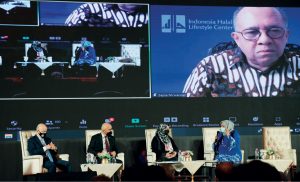
The first day of the event consisted of three exciting sessions – Ambassadors & Leaders Forum, Emerging Islamic Tourism Destinations and Domestic Tourism Forum – featuring relevant stakeholders within the tourism industry to share their insights on Islamic Tourism.
The first session featured Ravshan Usmanov, Ambassador of the Republic of Uzbekistan, Ardasher Saeedjaafar Qodiri, Ambassador of Tajikistan, Shazlin Ahmad, Country Manager in Southeast Asia for Saudi Tourism Authority and Dr Sapta Nirwandar, Chairman of Indonesia Halal Lifestyle. Aida Lim Abdullah, Chief Executive Officer of Penang Halal International, moderated the Ambassadors & Leaders Forum.
The panels shared available attractions in their respective countries and how they aimed to expand tourism in those places. Shazlin, representing Saudi Arabia, said that although the country was often associated with Muslims, it now wanted to tackle Muslim and non-Muslim tourists and go beyond hajj and umrah packages.
Domestic Tourism Forum
Moderated by Hannah Pearson, the Managing Director of Pear Anderson, the panel discussion on the first day of WITC talked about ‘Domestic Tourism Revival for Muslim Market’. It discussed the challenges and opportunities in the domestic tourism market.
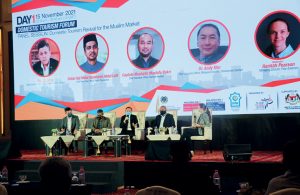 Yap Lip Seng, Chief Executive Officer of the Malaysian Association of Hotels, said the international market needed to return. He said hotels had carried out many initiatives to sustain their employees by depending on the domestic market, but it was still insufficient. For example, some hotels came up with a ‘work at hotel’ package, but the plan was unsustainable.
Yap Lip Seng, Chief Executive Officer of the Malaysian Association of Hotels, said the international market needed to return. He said hotels had carried out many initiatives to sustain their employees by depending on the domestic market, but it was still insufficient. For example, some hotels came up with a ‘work at hotel’ package, but the plan was unsustainable.
Yap revealed many hotels dropped prices and made the packages affordable when the government reopened inter-State borders last year.
“This time around, we realised that was not the right thing to do because of the pent-up demand. So, it’s not about pricing anymore. It’s about what the travellers want and can give them more value.
“With more tourists driving, there comes another problem, parking space. Not all hotels have sufficient parking for all rooms. It was a wake-up call for hoteliers but a good lesson learnt. Now stakeholders know better what to do with the domestic tourists,” said Yap.
He then shared some opportunities regarding the domestic tourism market, which were:
1, Catering to domestic tourists who used to travel overseas (more spending power)
2. Discovering previously unseen destinations
3. Tapping into Muslim domestic market
Touching on Islamic Tourism, Yap said: “There’s a need and demand, but to have that demand coming into our properties, we must first create awareness. That’s where ITC comes in and does the awareness campaign on the availability of such accommodation.”
Datuk Mohd Asyaharim Abdul Latif, Chief Executive Officer of Restu Foundation, said the pandemic urged people to emphasise humanities. It served as a valuable experience, but rebuilding the confidence of the domestic tourists would be a challenge.
Captain Mushafiz Mustafa Bakri, Chief Executive Officer of Malindo Airways, said SOP stability was one of the challenges for the aviation sector. However, he stated that there was potential for the domestic tourism market as people became more experimental in going to places previously less travelled, like Alor Setar.
Dr Andy Kho, Chief Executive Officer of Malaysia Economic Development Berhad, highlighted the importance of having comprehensive data in the ecosystem to gain people’s confidence to travel safely.
Strong leadership and policies
During the closing remarks on the conference’s final day, Dato’ Dr Mohmed Razip Haji Hasan said: “We have come to understand that there is no one size fits all solution for Muslim consumers and tourists.”
“As destinations emerge out of the pandemic and restarting tourism, the playing field is level. Those who do not plan for Islamic Tourism may be left behind by those strategising to capture this market.
“The Muslim-friendly Tourism and Hospitality branding and marketing can uniquely position a destination to appeal to the Muslim tourists market and broader market even. To embrace this concept, it is necessary to have innovative tourism products, services, and facilities that provide enjoyment, ease, comfort, and convenience to Muslim travellers besides being compliant with Shariah requirements.
“To move forward, Islamic Tourism must be supported by strong leadership, policies and innovative thinking, attention, investment and commitment from all parties.
“Therefore, as the organiser of the World Islamic Tourism Conference, Islamic Tourism Centre is ready to play its role. We invite industry players as well as all related agencies and communities to come on board with us.”
In total, there were seven exciting sessions held during WITC. Day 2 and Day 3 of the conference featured four fruitful sessions – Islamic Tourism Business Forum, Islamic Tourism Lifestyle, Islamic Tourism Scholars Forum and the Islamic Tourism Urban Forum.
Among the speakers, during Day 2 and Day 3 of WITC were Prof Dr Kim Soo-il (Secretary-General of Tourism Promotion for Asia Pacific Cities), Khairul Azmir Ahmad (Director of Culture, Arts, Tourism and Sports Department at Kuala Lumpur City Hall), Reem El Shafaki (Partner at DinarStandard), Dato’ Muzammil
Mohamad (ASEAN Regional Manager of Qatar Airways) and Riyanto Sofyan (Chairman of Indonesia Halal Tourism Association).
Day 3 of the conference also witnessed a special presentation by Prof Dr Jon Wilson, Director of International Business,
Regent’s University London, United Kingdom, discussing the old and new perspectives of halal branding and reputation management.

